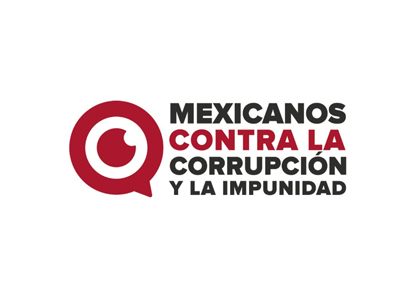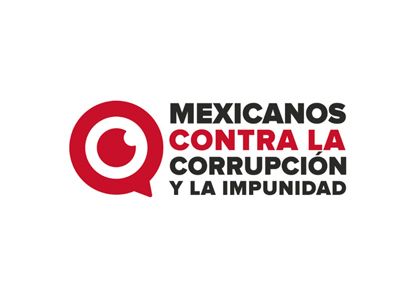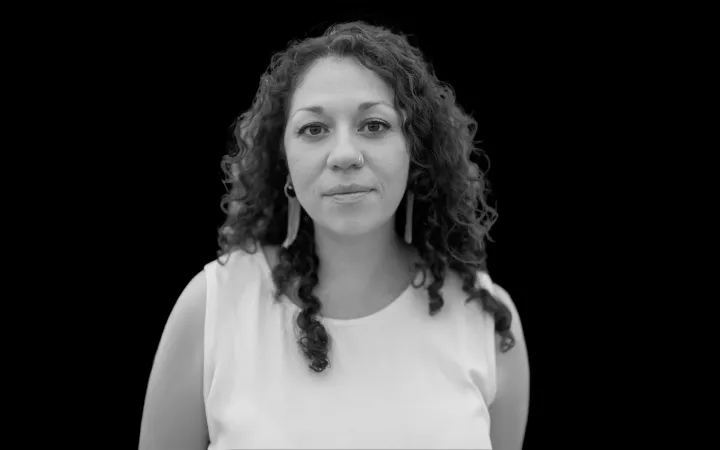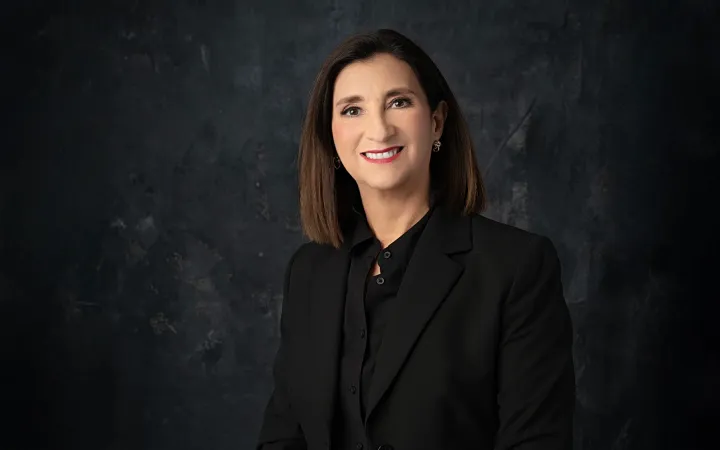Por el equipo de (Mexicanos contra la Corrupción y la Impunidad) está compuesto por Laura Islas, Frida Mendoza, Concepción Peralta Silverio, Ami Sosa Vera y Eduardo Buendía.


¿Qué tienen en común la mortalidad materna, la reconstrucción tras los sismos de 2017, las carencias en educación, la búsqueda de justicia, la obra pública inconclusa y la Auditoría Superior de la Federación (ASF)?
A primera vista podría decirse que nada, pero resulta que la investigación que publicamos esta semana en Mexicanos Contra la Corrupción y la Impunidad “En busca del dinero perdido de la ASF” reúne todos los ingredientes.
Los informes de Cuenta Pública de 2000 a 2020, así como las bases de datos que entrega su Sistema Público de Consulta de Auditorías, fueron el punto de partida para una investigación que busca ir más allá de lo que presenta la ASF y dar seguimiento al dinero con irregularidades y se supone, debe ser reintegrado a la federación.
Demos un paso atrás brevemente, porqué entenderlo puede ser un dolor de cabeza: la misión más importante de la Auditoría Superior es vigilar que se ejerzan de manera correcta los recursos públicos federales y prevenir actos de corrupción. ¿Cómo logra esto? Documentando posibles desvíos y pidiendo explicaciones, que en caso de que no ocurran, se solicite la devolución del dinero y se denuncie a los responsables.
Entonces, ¿qué encontramos en esta investigación que nos llevó meses?
Que en los primeros cuatro años con David Colmenares Páramo como auditor superior (2017-2020), la ASF sólo ha recuperado 17 de cada 100 pesos señalados con irregularidades.
Siguiendo las cuentas, podemos comparar las administraciones anteriores y de 2000 a 2016 hallamos que el promedio de rescate es de 53 pesos por cada 100.
Por esta razón, nuestra investigación se llama "En busca del dinero perdido", porque de los más de 454 mil millones de pesos que se han observado como irregulares de 2017 a 2020, más de 378 mil millones de pesos siguen en el limbo.
Pero más allá de los números, para esta investigación decidimos encontrar el corazón de esto, porque cada auditoría, cada peso irregular tenía un propósito principal que era en beneficio de la sociedad.
Por el volumen del dinero y de la información tomamos cinco estados emblema, que en común tienen observaciones con montos multimillonarios de 2018 y 2019, las primeras Cuentas Públicas entregadas por David Colmenares, y revisamos las solicitudes de aclaración y pliegos de observación, acciones que según el manual, pueden proceder en una denuncia si es necesario.
En Morelos hay más de 6 mil millones de pesos no aclarados en 2018, de los cuales elegimos revisar el dinero que era para la reconstrucción y los damnificados. ¿Cuál fue el hallazgo? Una diáspora de dinero público que se fue perdiendo como la arena: Morelos recibió 15 mil 884 millones de pesos solo de ayuda, de los cuales 2 mil 637 millones se "perdieron" o no están justificados.
La ASF tiene en pliegos de observación 568 millones, mientras que el órgano auditor del estado ESAF mil 325 millones y 743 millones de pesos están perdidos o no hay obras que justifiquen su gasto.
Para este capítulo recorrimos Jojutla y verificamos cómo todavía hay damnificados sin recibir ayuda: 200 familias que tenían casa y no les ayudaron a reponerla. La burocracia fue muy estricta con ellos, fueron discriminados de la ayuda por ser los más pobres y no tener un terreno. Mientras que con empresarios y proveedores privó la dispensa a la ley. Hubo "moches", obras inexistentes, de menor calidad, sobrecostos, pagos por obras no hechas, aulas inexistentes. Empresarios que prometieron construir viviendas y se fueron con las tarjetas.
Conocimos a Aniceto, Antonio y la familia Tinoco. No les llegó nada de ayuda. A Ariadna no la escucharon en sus necesidades y a cinco años del terremoto y tres de que la ASF observó estos recursos, pero inexplicablemente no procede a la acción inmediata para recuperarlo.
Si la ASF recuperará el dinero un pliego de observación, el de mayor monto por 363.111 millones de pesos, se podrían construir más de mil casas para los damnificados.
No hubo mejor metáfora para Tamaulipas que titular a su obra pública como un pozo sin fondo, dinero y dinero en el limbo y la prueba está en auditorías con montos récord.
En una sola acción, de 2018, se pidieron aclarar alrededor de 9 mil millones de pesos. Se tocaron puertas, se tramitaron solicitudes de información y la respuesta fue general: no hay registros que puedan dar respuesta, incompetencia para responder.
Las inconsistencias en el gasto público de Tamaulipas son pozos de dinero a los que no se les ve el fondo. Algunas están por cumplir seis años y no se observa ninguna variación en las aclaraciones que reporta la Auditoría.
Topar con pared fue una realidad similar en Tabasco, donde todo el estado acumuló en 2018 más de 12 mil millones de pesos y más de 11 mil siguen en el limbo.
En una solicitud de aclaración que engloba a más de 37 dependencias, encontramos que la mitad correspondía a universidades, colegios tecnológicos o de nivel bachillerato, que en conjunto sumaron irregularidades por 435 millones 570 mil pesos.
El dinero perdido en educación en Tabasco posiblemente serviría para que sus estudiantes pudieran tener baños dignos con agua, salones con aire acondicionado o instalaciones que les resguarden de la lluvia y permitan que puedan estudiar secos tras más de dos horas de trayecto desde su casa, pero encontrar una respuesta por parte de las secretarías de Educación, Finanzas o Función Pública fue una misión imposible, tanto personalmente como en solicitudes vía transparencia.
Hablar de justicia en Jalisco es un tema laberíntico, similar a lo que hallamos en los reportes de la Auditoría, que mientras se vive una crisis humanitaria al ser el estado donde más personas desaparecen, el estado no ha comprobado desde 2018 más de 5 mil millones de pesos.
Mientras el estado se ha convertido en una gran fosa, 45 millones correspondientes al fideicomiso “Nuevo Sistema de Justicia Penal y Juicios Orales del Estado de Jalisco” -creado para la implementación del Nuevo Sistema de Justicia Penal, fundamental para que haya justicia en este delito- están perdidos.
¿Cómo podrían ayudar estos 45 millones? Posiblemente servirían para que Héctor de 19 años fuera buscado en las primeras 72 horas, luego de que se lo llevaran hombres armados de su hogar sin ninguna orden de aprehensión, misma situación de Carlos Maximiliano y Miguel. El alcance de la inseguridad, donde no puedes sentirte a salvo en casa, tiene atemorizados a los tapatíos quienes no esperan nada de la justicia.
En Chiapas, encontramos una auditoría donde se señaló que el Instituto de Salud del Estado de Chiapas (ISECH) administró de manera irregular 1,258 mdp del Fondo de Aportaciones para los Servicios de Salud (FASSA) dirigido a mejorar la atención médica de las personas sin seguridad social y al pago de nóminas.
Curiosamente, este fondo, el FASSA en 2019 tenía como compromiso principal disminuir la mortalidad materna en el país. Ese año Chiapas reportó un avance del 124% en el indicador de reducción de mortalidad materna del fondo, pero no hay evidencia presupuestal que explique cómo se logró ese objetivo.
Recorriendo Chiapas, se pudo atestiguar las deficiencias en el sistema de salud, ambulancias sobre cajas de refrescos y ver lo “normal” que es encontrar testimonios de mujeres que perdieron un bebé o simplemente cómo se negaban ultrasonidos.
Este capítulo se llamó “Las cuentas licuadora” debido a que la mayor parte del dinero perdido se disolvió entre 14 cuentas bancarias distintas que el ISECH utilizó para administrar los recursos del fondo, un esquema que no es nuevo y se practica en el estado desde 2012. Con la cantidad de dinero público que está en el limbo, se podrían comprar 744 ambulancias equipadas y mil equipos de ultrasonido.
Estos casos son una pequeña muestra de lo que pasa si la Auditoría Superior de la Federación no cumple con su deber.
Te invitamos a conocer la investigación completa en el sitio de Mexicanos contra la corrupción y la impunidad.
Las opiniones expresadas son responsabilidad de sus autoras y son absolutamente independientes a la postura y línea editorial de Opinión 51.
Más de 150 opiniones a través de 100 columnistas te esperan por menos de un libro al mes. Suscríbete a Opinión 51.






Comments ()